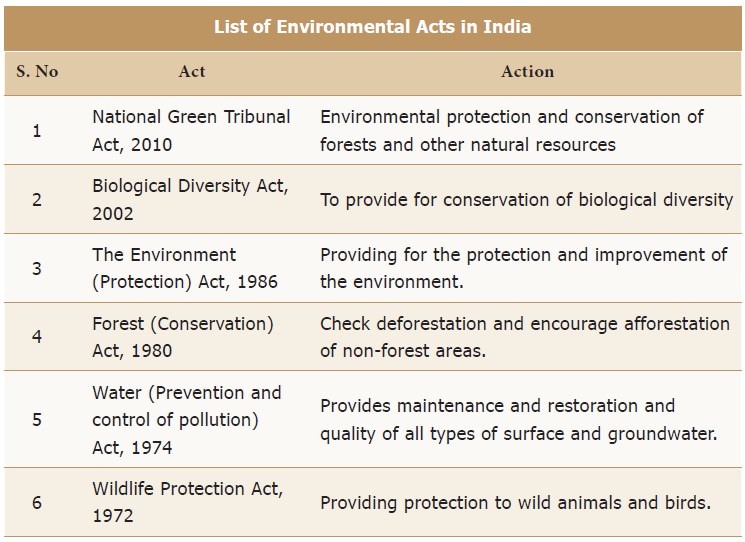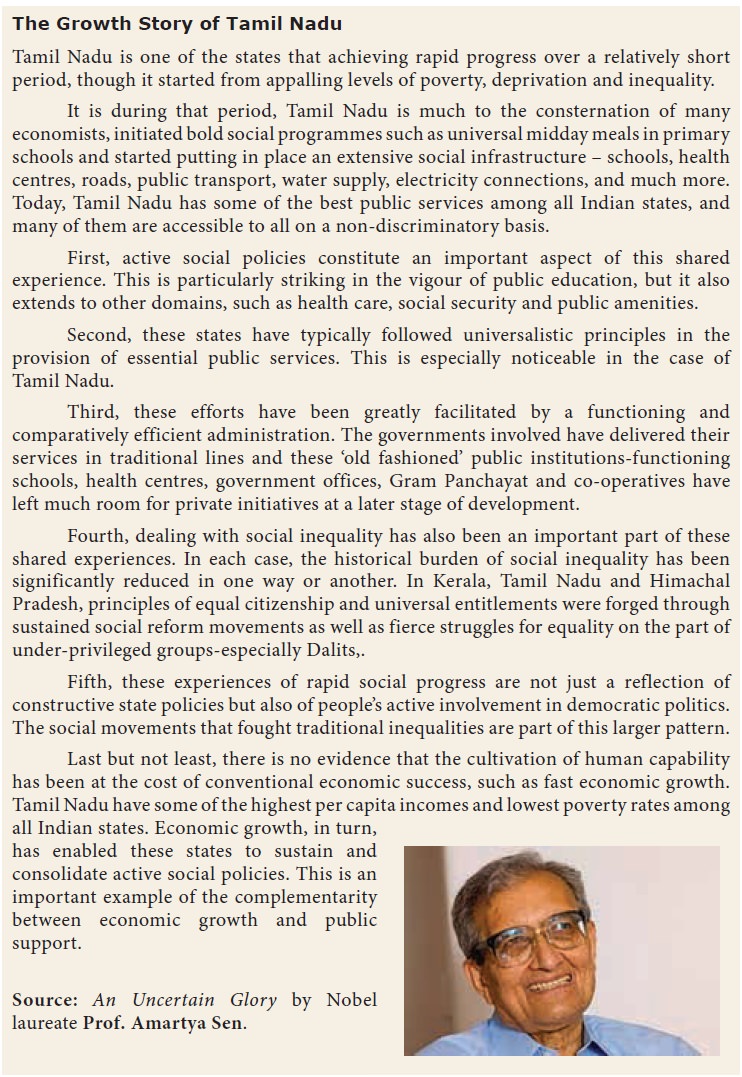Economics - Environmental Policies in India | 9th Social Science : Economics : Understanding Development: Perspectives, Measurement and Sustainability
Chapter: 9th Social Science : Economics : Understanding Development: Perspectives, Measurement and Sustainability
Environmental Policies in India
Environmental Policies in India
Environmental policies in India have been evolved
considerably over the past three decades. These policies have covered a wide
range of issues such as air, water pollution, waste management and biodiversity
conservation.
India faces challenges in economic development,
which has to be achieved with limited resources, minimum externalities and in
the presence of an uncertain climate. One of the approaches to overcome this
challenge is through the path of sustainable development.
The Supreme Court of India has interpreted and
introduced new changes in environmental protection through a series of
directions and judgements.


Article 51A(g) of the Constitution states that “it
shall be the duty of every citizen of India to protect and improve the
natural environment including forests,
lakes, rivers and
wildlife and to have compassion for living creatures.”
Development increases the quality of life. This
means that people will have higher incomes, better education, better
health and nutrition,
less poverty and more equality of opportunity.
Recap
·
Development refers to the progress of a particular
field or a particular person.
·
Economic development means overall growth of all
sectors of the economy.
·
The
major indicators of
economic development are Per Capita Income, Net National Product,
Purchasing Power Parity and Human Development Index.
·
Human resource is necessary for the progress of any
country.
·
Sustainable development means development should
take place without damaging the environment and preserve it for the future.
·
The Wildlife Protection Act 1972 is aimed at
protection to wild animals and birds.
·
Thermal
power plants emit large quantity of carbon dioxide, which is harmful to
the environment.
Related Topics